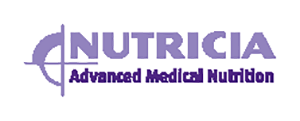Putting good nutrition at the centre of health and social care
Nutricia Medical explains why good nutritional care plays an integral role in health care planning in Northern Ireland.
There is a growing consensus that health care in Northern Ireland (NI) needs to evolve if the DHSSPS is to meet future financial and demographic pressures. We know that medical nutrition, mainly in the form of prescribable nutritional products, play an important part in enhancing clinical, patient and health outcomes. Therefore, good nutritional care with appropriate use of medical nutrition should form an integral part of health care planning in NI.
As the market leaders in medical nutrition in NI, Nutricia Medical is committed to helping people live healthier lives for longer. The role of nutrition in preventing a significant number of chronic illnesses and helping people recover from them is well known – but is the DHSSPS doing all it can to ensure that the most vulnerable people get the nutrition they need?
The challenges facing the DHSSPS – balancing the budget while coping with increasing demand from an ageing population and more chronic disease – are widely recognised. Health and social care expenditure on malnutrition in England is estimated to be £19.6 billion per year. In 2011, the National Institute for Health and Care Excellence, NICE, estimated that improving the identification and treatment of malnutrition would have the third highest potential to deliver cost savings to the NHS.
Transforming Your Care sets out an overarching road map for change in the provision of health and social care services in NI. There appears to be a great degree of consensus that we need to focus on preventing ill health where possible, on integrated and patient centred care and new ways of delivering health care in the community. In this context, good nutritional care needs to be prioritised in NI to realise significant cost savings.
More than one in four people admitted to hospital in NI are nutritionally at risk and/or malnourished. This malnutrition is associated with chronic conditions such as cancer and respiratory conditions like Chronic Obstructive Pulmonary Disease (COPD). Disease-related malnutrition, which can be clinically advanced even in patients with normal body weight, remains a major cause of avoidable complications and an independent risk factor for conditions that are generally associated with poor quality care: pressure sores, hospital acquired infections, longer length of stay and higher readmission rates.
Malnutrition is relatively easy to treat, however it is regularly overlooked in our increasingly overweight society. Malnutrition crosses boundaries between health, social and community care and requires an integrated approach to make good nutritional care everyone’s concern. 93 per cent of malnourished individuals live within the community, hence there is a strong health economic drive to prevent those individuals being admitted to hospital.
Northern Ireland has an excellent nutritional policy in Promoting Good Nutrition (PGN) in place since 2011. The vision for this policy is to improve the quality of nutritional care of adults in health and social care, whether delivered or commissioned, through the prevention, identification and management of malnutrition in all health and social care settings including people’s own homes. This starts with nutritional screening, however widespread nutritional screening across all health and social care settings is still not happening in NI. Screening is mainly limited to acute hospital admissions and care homes, with varied compliance rates. This means that there is a delay in diagnosing malnutrition in the community, and this diagnostic delay exposes patients to an avoidable risk including more GP visits, more hospital admissions, longer hospital stays due to higher complication rates and poorer outcomes overall.
The Donaldson report 2015 makes ten recommendations to strengthen the quality and safety of care in NI, and good nutritional care is an integral part of seven of these recommendations:
Recommendation two: Strengthened commissioning: commissioners need to prioritise investment in a workforce that has the necessary skills to undertake identification, prevention and intervention to reduce the burden of malnutrition, including an adequately resourced dietetic service.
Recommendation three: Transforming your care – action not words: initiatives that will reduce the demand on hospital beds should be launched immediately. Over-whelming evidence supports the role of medical nutrition in reducing hospital admissions, re-admissions and length of stay. Good nutritional care with appropriate use of medical nutrition in the hospital setting has been shown to reduce length of stay by two days, and in the community, saves 1 in 6 hospitalisations.
Recommendation four: Self–management of chronic disease: Patient self-management and supported self-management is a key part of modern health care. Malnutrition is both a cause and a consequence of chronic disease and patients need to be educated to understand the important role of good nutrition in improving their disease management.
Recommendation five: Better regulation: in England, the Care Quality Commission has already looked at aspects of nutrition and how well organisations have reacted. In the Republic of Ireland, the Health Information Quality Authority (HIQA) is currently engaging in a series of unannounced hospital inspections to assess nutrition and hydration, with a view to developing a system of continuous improvements.
Recommendation six: Making incident reports really count. Recommendation 8: System wide data and goals: We know that malnutrition contributes to poorer patient outcomes. Optimizing data systems to facilitate monitoring and evaluation of key performance indicators around nutritional care will lead to the development of a system that can track improvements in this area.
Recommendation nine: Moving to the forefront of new technology: the potential to revolutionise healthcare through information and digital technology can be applied to good nutritional care, such as prompting GPs to screen in conditions where malnutrition is highly prevalent, to automated systems that can support compliance with medical nutrition.
Nutrition as a medical intervention can help in various ways, including by:
• Preventing, halting and reversing nutrient deficiencies
• Preserving lean body mass
• Helping patients better tolerate treatments, such as chemotherapy
• Minimising nutrition-related side effects and complications
• Maintaining strength and energy
• Promoting immune function and decreasing the risk of infection
• Aiding in recovery and healing
• Improving quality of life
Action today on medical nutrition
In this article, we have focussed our attention on one aspect of best practice which meets the tests of delivering high impact, evidence-based interventions which do not require complex system change. Our focus is medical nutrition and the value it can rapidly add to better outcomes through good nutritional care as part of tomorrow’s DHSSPS.
Medical nutrition refers to tailored nutritional interventions including specific nutritional feeds and feeding systems, such as tube feeding. It is used by healthcare professionals when people are unable to swallow or eat orally, when they cannot eat a normal diet because of their condition, or because they have a changed need for certain nutrients. For many people, medical nutrition in the form of ready-made oral nutritional supplements can sit alongside normal foods, and be consumed in a variety of settings: at home, in care homes and in hospitals.
Conclusion
There are significant potential savings for commissioners and health providers from the full implementation of Promoting Good Nutrition which can be prioritised with these 3 key actions:
1. Everyone using Health and Social Care Services is screened to identify those who are malnourished or at risk of becoming malnourished. This includes screening in the community by district nurses, GPs and those attending out- patient departments.
 2. Nutrition training of health care professionals so that as a minimum they can identify the signs of malnutrition and the components of good nutritional care.
2. Nutrition training of health care professionals so that as a minimum they can identify the signs of malnutrition and the components of good nutritional care.
3. Public awareness of malnutrition is low. This should be increased through educational campaigns to make older persons and those with chronic illnesses aware of malnutrition, and how it can be prevented and/or managed effectively.






